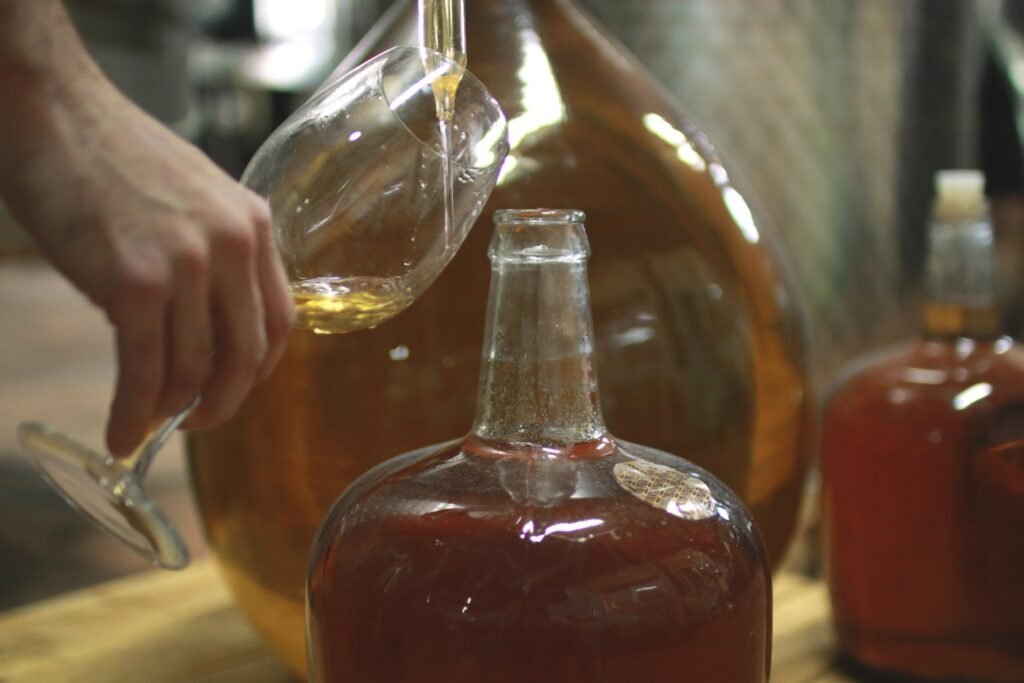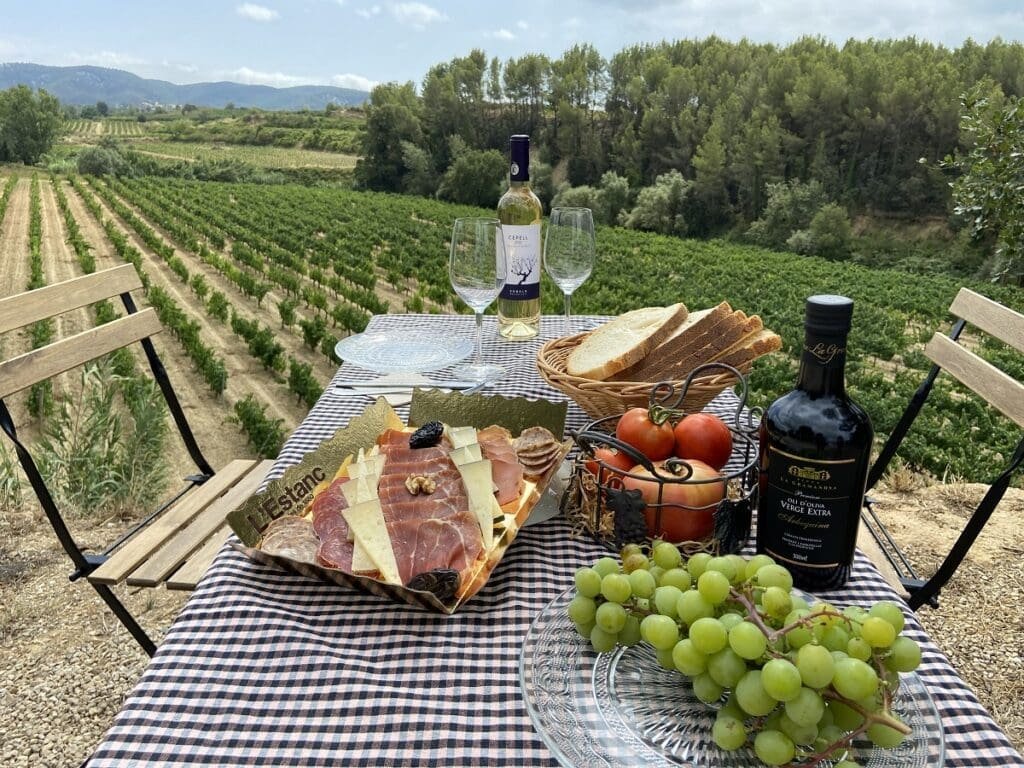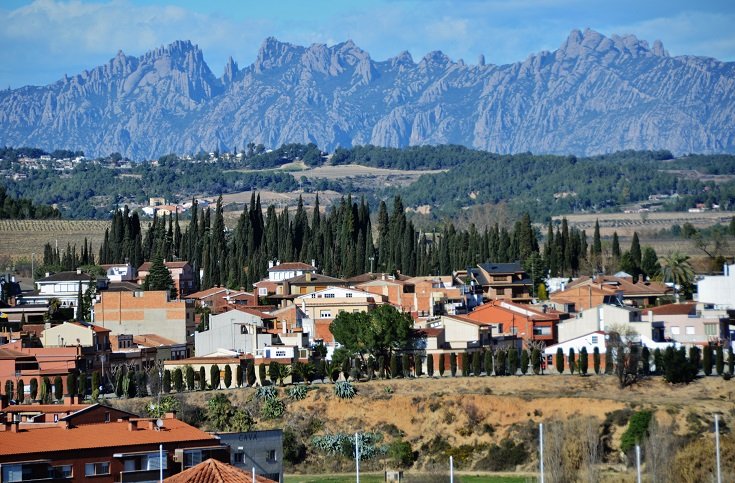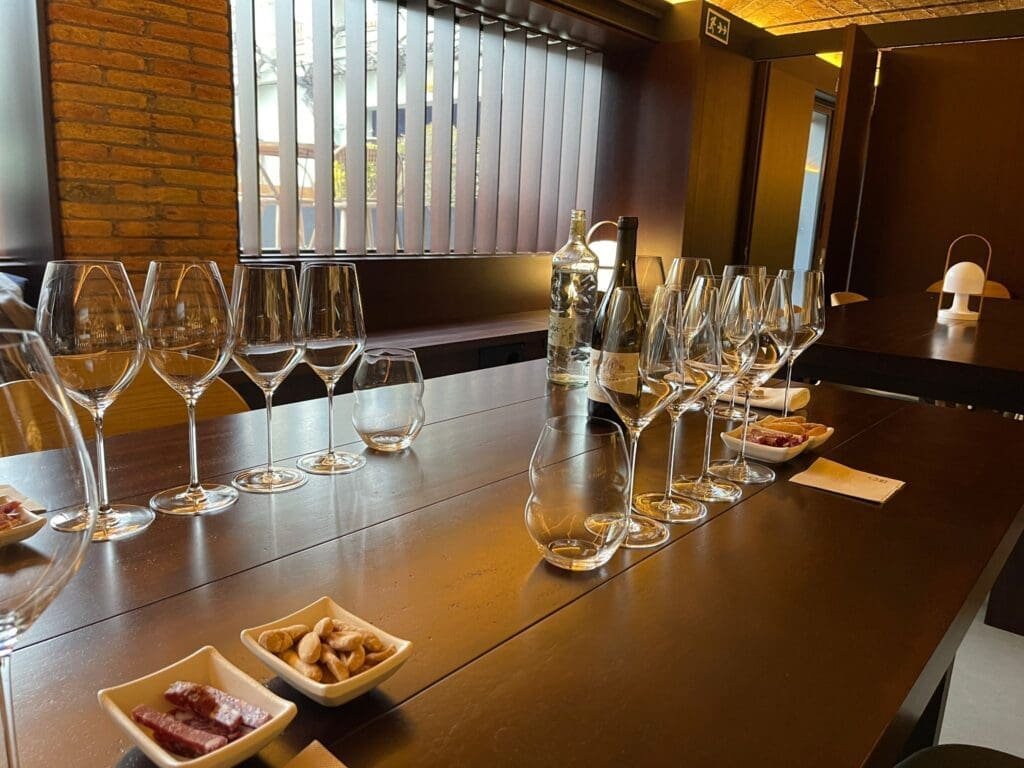Exploring Hidden Natural Wine Cellars in Barcelona
When coming to Barcelona, there is a question for every natural wine lover: what is the natural wine scene in Barcelona? If this is the case, you are a lucky person. Barcelona is becoming a hub for young wine-makers from renowned wine regions like Cava, Penedes & Tarragona. They all have their particular terroir and local grapes. On top of that, there is a market thriving for new things. This is a Latin culture with a Mediterranean lifestyle, and we love our wine!
This Natural wine list of cellars near Barcelona is a shout-out to all the young winemakers and small entrepreneurs doing their best to preserve the terroir and express the freshness of their wine. First, we will ask Joan, our wine expert, about natural wine. You can learn about him and his tours at the end of this post.
What is a natural wine?
Natural wine was the oldest way to produce wine before the “boom” of the industrial process and the quemics it brought.
Grapes used in natural wines are typically grown without pesticides, herbicides, fertilizers, or any other artificial product commercial wines may use. This is known as “Organic” agriculture. A step over would be “Biodynamic” farming, where farmers use the organic resources surrounding them and follow the course of nature & its cycles.
Natural wine is a type of wine made with minimal intervention in the vineyard and the winery. Natural wines do not use any artificial yeast; these types of wines use a “spontaneous” fermentation from their natural yeast, located in the skin of each grape.
Natural wines do not use any additives, either in the field or in the bottling process. Sulfite is a stabilizer that prevents wine from making any “mistakes” and a more controlled production. That is why natural wine is the “honest” wine, as the most important thing is the capacity of the person producing every bottle not to find them. Minimal intervention wine can only add a tiny proportion of sulfites in the bottling part. Some are unfiltered so that you may find some yeast inside from the fermenting process.

When did natural wine start?
Natural wine is how our ancestors produced wine, the oldest taste of wine.
In modern times, it is still unclear who coined the term “natural” wine, although it is believed to have originated in restaurants and wine bars in France, Spain, and the UK around the 2000s.
Some French producers in the north region of Alsace were curious about bringing back these old techniques into their wineries and fields around the 1980s. In the 1990s, it spread to other areas, such as Beaujolais in the country’s center and Loire in the central west of France. In Catalonia, it began around the 1990s-2000s in the center-south region, between Penedés and Tarragona regions.
Nowadays, we find that in Catalonia, we are having a big “revolution” in our wine industry. In 2017, we had “the crisis of the grape,” where the price per kilo of grape was reduced by 30% on average, and some young and talented winemakers that are coming from farmers’ families started their projects, producing “natural” wine or “minimum” intervention style. Barcelona, one of the biggest cities in natural wine bars and restaurants, saw a nice and massive market opportunity.
Booking a natural wine tour in Barcelona.
Would you like to visit wineries from this blog? Our wine expert and co-author, Joan, will take you personally to these unique places. Please send us an e-mail to info@wino.tours asking us to join the private tour of natural wine or contact us using the contact form.
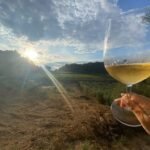
Where can you find natural wine cellars near Barcelona?
For all the factors mentioned above, Barcelona is becoming a significant hub for natural wine culture in Spain. Near the city are over ten wine regions, all of which have different terroirs, use other grapes, and have different stories. The most relevant is the Penedes region, which is only 45 kilometers from Barcelona and has over 300 wineries. From this region comes the famous cava, home to 3 white grapes: Xarel·lo, Macabeu, and Parellada. We find the Penedes’ most fascinating ecosystem of young entrepreneurs and natural wine experts.
Natural wine cellars in the Penedes & Cava region
1. La Fita
Can Patomàs, Alt Penedès, Catalunya
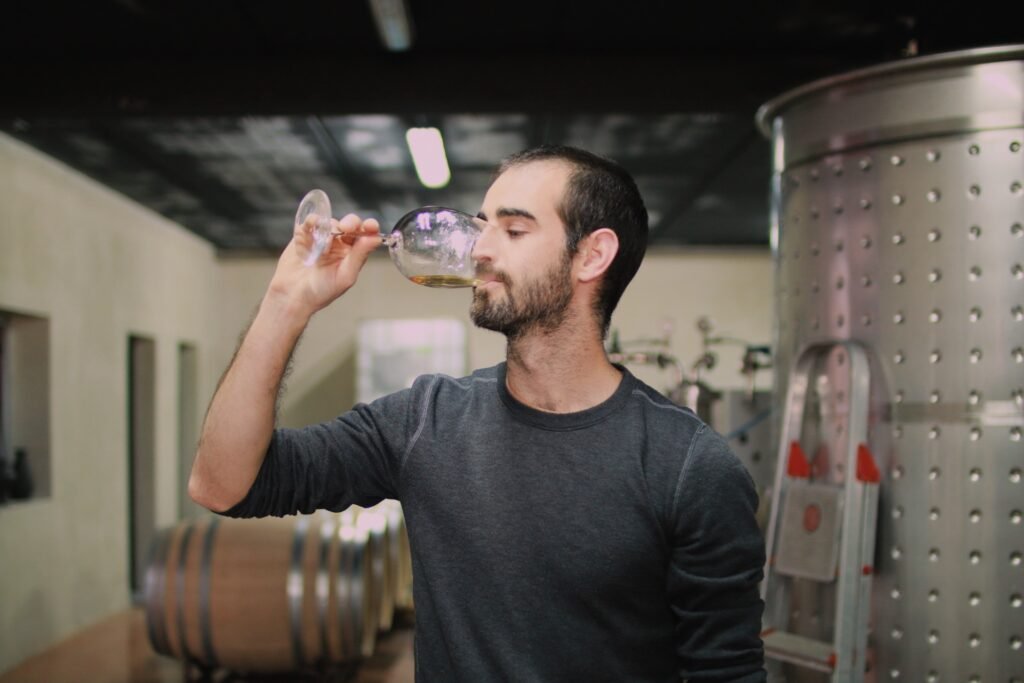
Martí Torrallardona is a young and talented winemaker from the Penedés region. He studied enology at Tarragona University. After graduating, he started his career in several prestigious classical cellars in penedés. However, his mind began to imagine his project, as his family owned several vineyards in the same region. Marti’s fields are next to the river “Bitlles,” which brings its soil humidity and protection during the hot summers and helps to keep the temperature in the wintertime. He is still making wine in some friend’s cellar, and his main goal is to express the terroir through his wine. Working mainly in steel vats and demijohns to intensify Penedes soils’ acidity and crisp taste. Expect Martí’s wine to be clean and transparent.
For me, minimal intervention does not mean zero sulfur, but I believe that, at certain times, a small amount is necessary to achieve the style of wine I am looking for. What is essential is spontaneous fermentation to capture the essence of Penedès and to be able to show it to the world. I make fresh wines with low alcohol content and high acidity (a consequence of climate change), and I use different materials such as glass, oak and steel demijohns.
I like the phrase “minimum intervention but maximum precision”—always knowing what is happening in the wine but intervening as little as possible. All wines have a total sulfur level of around 30-40 mg/L to guarantee its stability.
Martí Torrallardona, winemaker & entrepreneur in La Fita
2. Vinestar
Can Rosell de la Serra, Alt Penedès, Catalunya
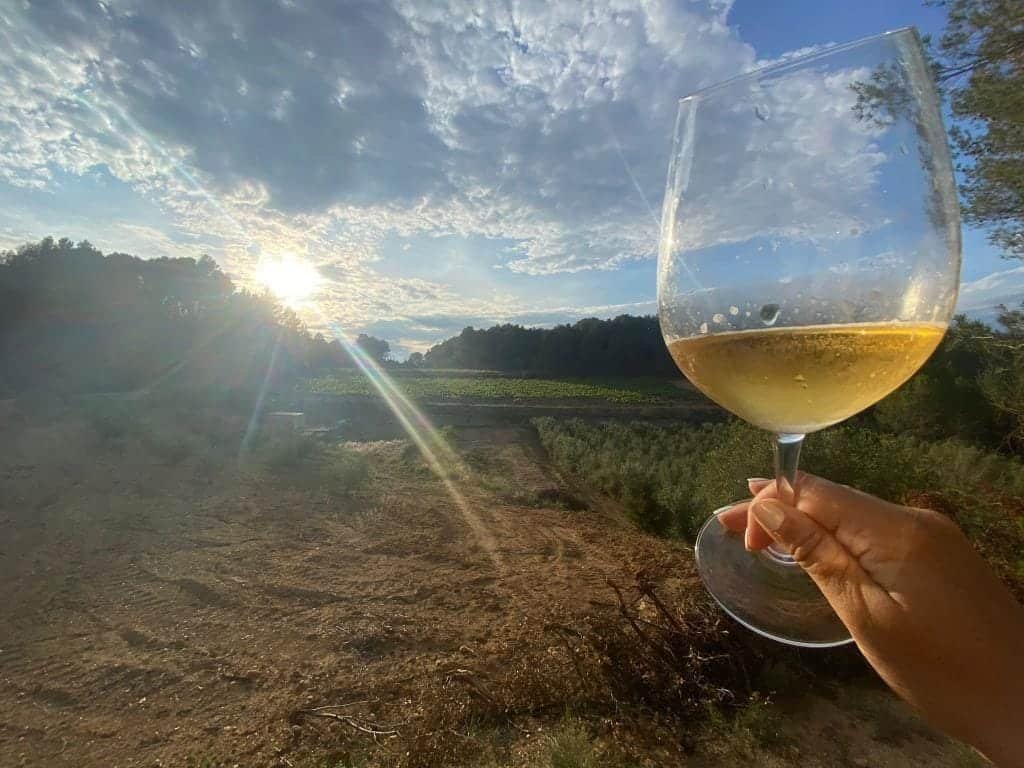
A hidden and privileged place in the Pendès region, located as what locals know as the “grand crus” of the Penedes region. Ricard and Ariadna are a couple who have just started their project after a long history of wine-making worldwide: Balearic islands, Poland, and Barcelona. Ricard comes from a family of doctors and studied at Tarragona University. He started his career in the Priorat wine region, where he could work with a prestigious enologist. Ricard moved to the Penedés region to improve his sparkling wine methodology. When he established in Sant Sadurní, he met Ariadna, a clever girl already working in a Corpinat cellar in the tourism department and was as well known in the region as one of the most talented sommeliers. None came from a farming family, but they both shared the same dream of having their little cellar. That is why, in 2021, they invested in buying some hectares in the most iconic valley in the region and started their sparkling wine project.
When we found those vineyards we understood that it was time to create and build together. Our idea is to make wines that express the vineyard and its uniqueness. And the best way we have found to do it is through the ancestral method. That is why our Vinestar project only produces sparkling wines using the ancestral method, also known as Pet-Nat or Petillant Naturel.
Inspired by the concept of Recoltant-Manipulant de la Champagne, we work our own vineyard and control all the processes. All the bottles pass through our hands, and we take care of them with all the love and affection in the world.We like to make the world of wine easy, escape the stigmas and prejudices that have been created, and bring wine culture closer to people. Wines with minimal intervention and high precision, that people ask for bottles and have a good time at any time in any situation. To share, to break the routine any day and time of the week.
Ariadna Garcia, sommelier & entrepreneur in Vinestar
Booking a natural wine tour in Barcelona.
Would you like to visit wineries from this blog? Our wine expert and co-author, Joan, will take you personally to these unique places. Please send us an e-mail to info@wino.tours asking us to join the private tour of natural wine, or contact us using the contact form.

3. Cal Xurriu
Can Catassús, Alt Penedès, Catalunya
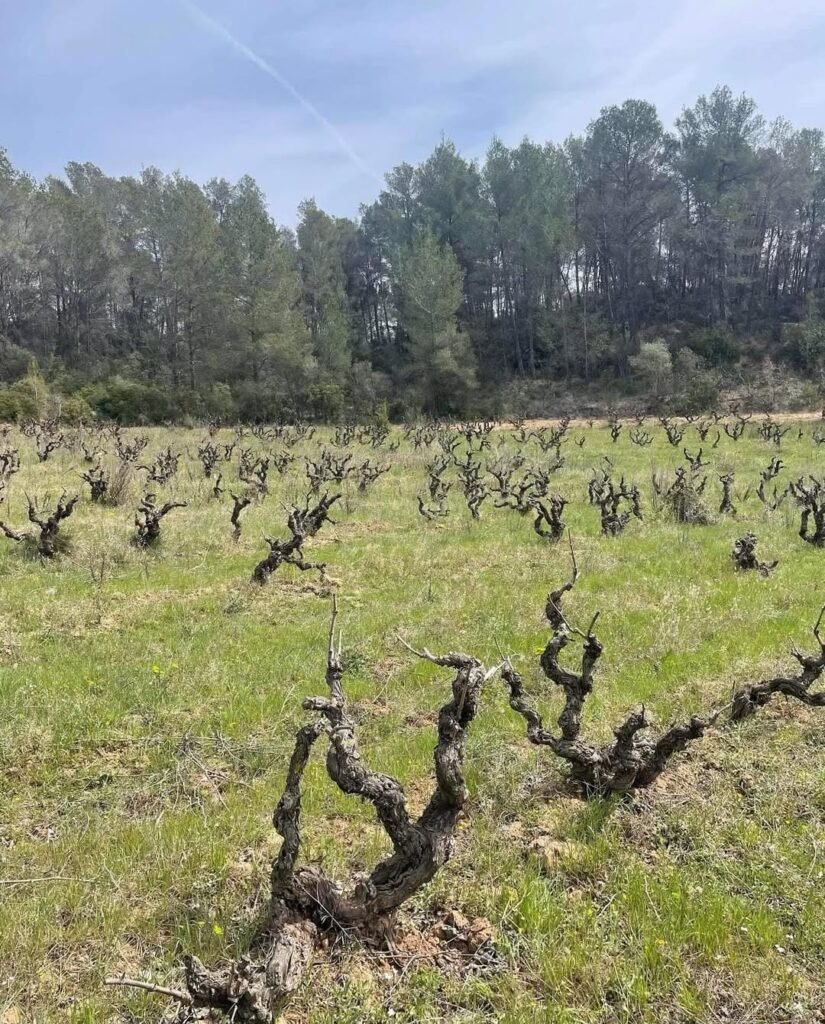
Agustí Costa and Paula Sandoval are behind this hidden diamond in the Penedes. Paula owned two different restaurants with a Michelin star each. One is in the Basque country, and the other is in Girona. Not only did she study cuisine, but she was also known for her sommelier skills. On the other hand, Agustí comes from a farmer’s family with plenty of hectares in Sant Sadurní and its surroundings. When the grape crisis started in 2017, he could convince his parents to have some of their grapes to create some wine. After his enormous success with his project, he began to export wine to other parts of Spain; one of the restaurants interested in his wines was Paula’s restaurant. They fell in love as soon as they met each other, and nowadays, they have created a gorgeous team where Paula has brought some nice and fresh ideas that she had gained from her previous restaurants.
4. Paret seca
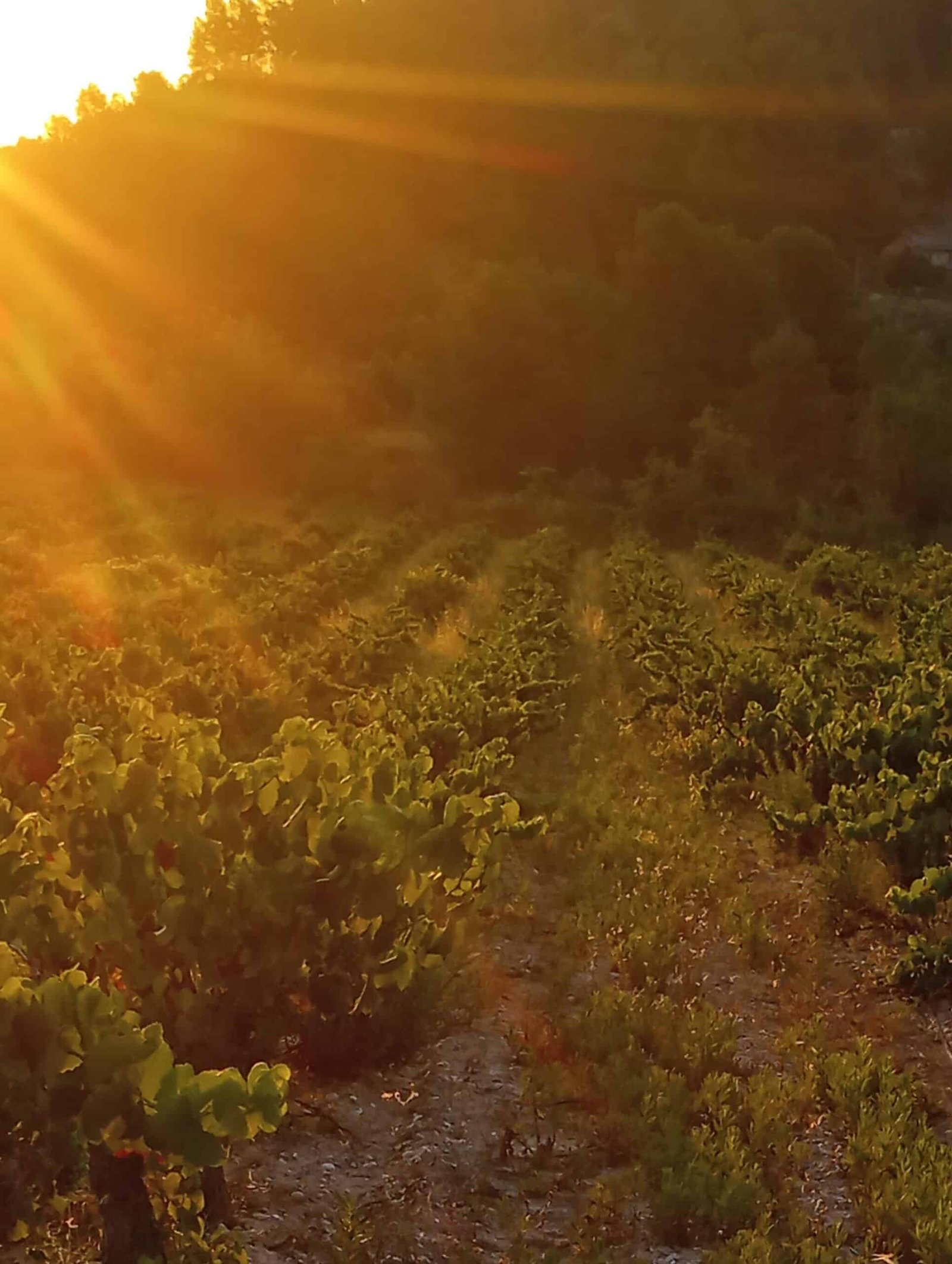
The Cellar Paret Seca makes wine at the Cal Costas farmhouse in Font-rubí, a nursery of micro cellars that share tools and facilities, but each has its tanks and grapes.
The visit to the cellar includes a tour of the vineyard and an explanation of the production process, including the particularities of natural wines, such as not adding sulfites and taking great care to clean and protect the must. Also, breakfast in the shared restaurant and tasting four Paret Seca wines are possible.
The visits are only for groups of at least four people and are by appointment on Saturdays and Sunday mornings. They cost 25 euros per person.
About the co-author
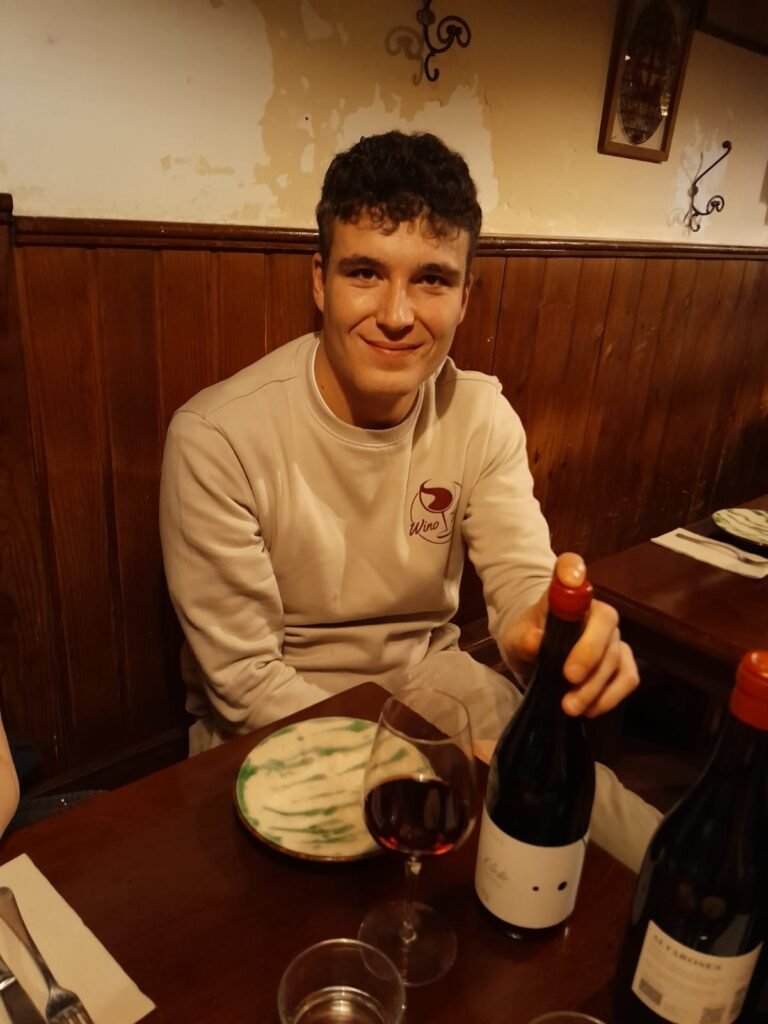
Joan is a young and talented sommelier born and raised in the capital of Cava, Sant Sadurní. He is all about natural wine, and he knows firsthand the wineries from this blog as he works alongside them, distributing their wine to local shops in France.
If you are a natural wine lover, you should book a tour with him. Just send us an e-mail to info@wino.tours asking us to join the natural wine private tour or contact us using the following form.

